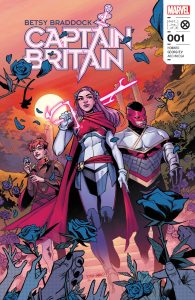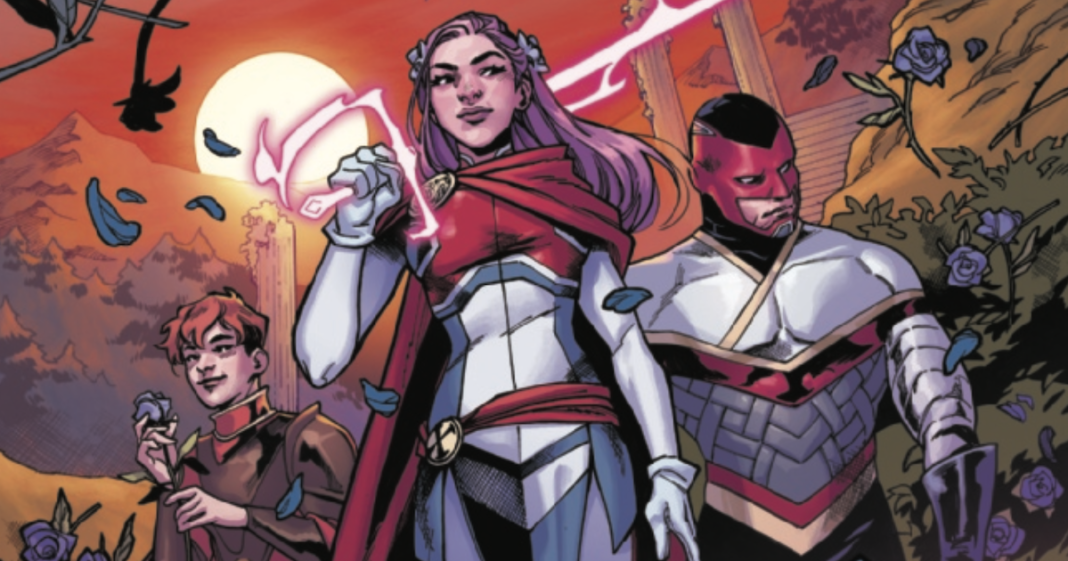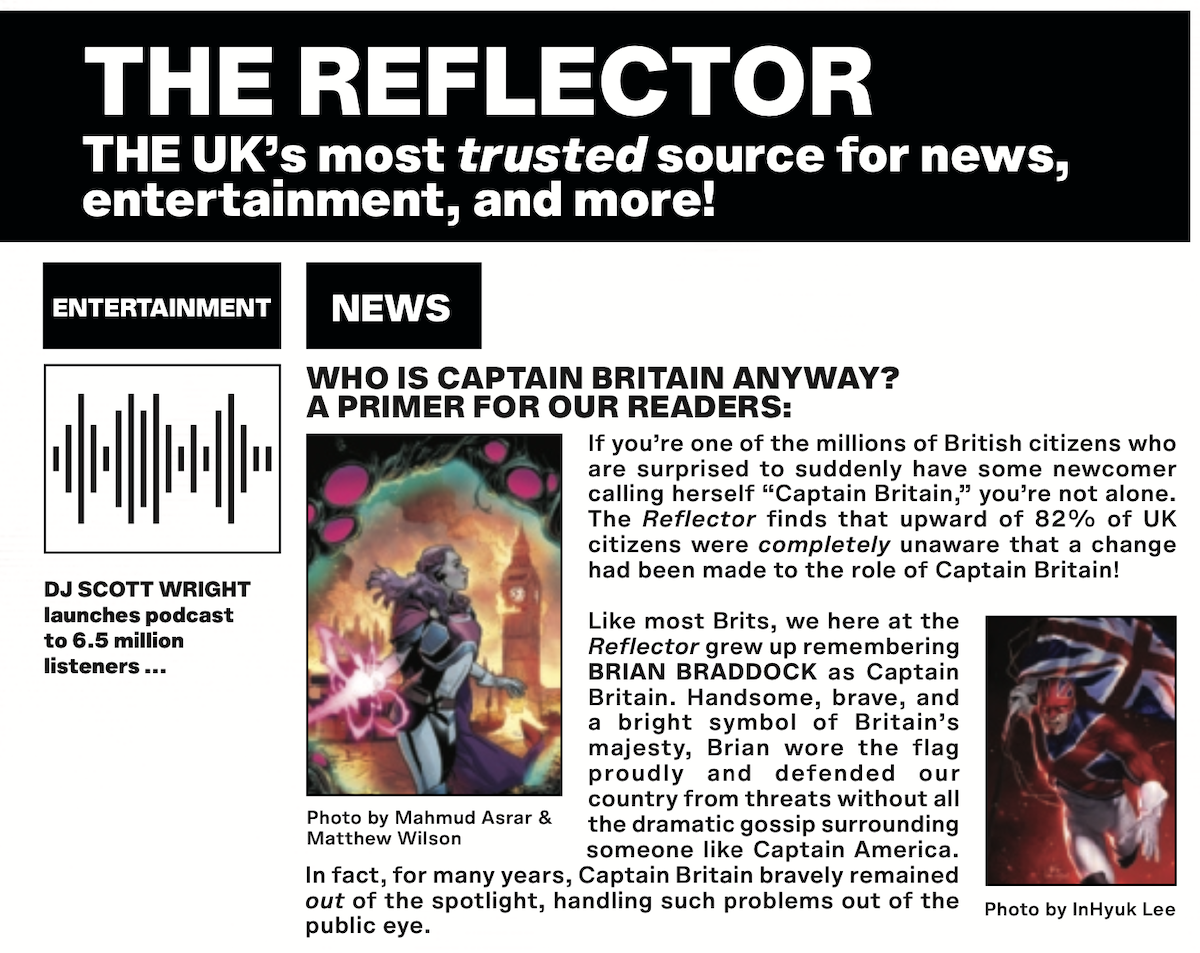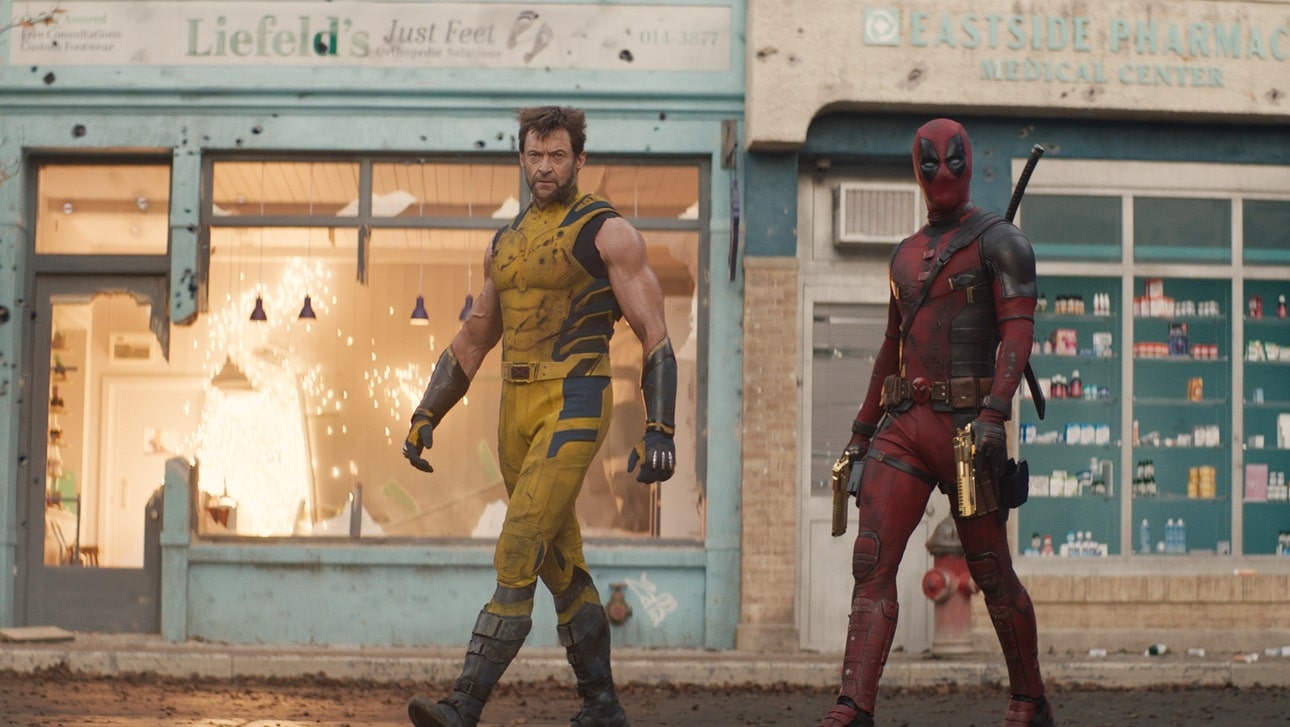This week, Captain Britain returns with a new number one! Check out our Marvel Rundown review of the title, but beware: it includes spoilers.
Then, be sure and let us know what you thought of this week’s fresh Marvel Comics issues, either right here in the comment section or over on social media @comicsbeat!

Captain Britain #1
Writer: Tini Howard
Artist: Vasco Georgiev
Color Artist: Erick Arciniega
Letterer: Ariana Maher
Design: Tom Muller w/ Jay Bowen
Main Cover: Erica D’Urso & Matthew Wilson
In the wake of taking over for her brother as Captain Britain, Betsy Braddock continues to face a metric assload of sexism. In addition to provided a solid setup for future issues, this issue also does a good of exploring this theme in and of itself.
What Exposition Means to Me
While the Krakoa books may not be my specialty, in those issues I have read from this incarnation of the X-line, I’ve often enjoyed the black & white, text-heavy pages which convey large amounts of exposition in a dense splash of information. Captain Britain #1 utilizes this technique multiple times over the course of its 31-page length, to great effect each time.
These expositional pages can take many different forms, adapting to suit the narrative needs of whatever title they happen to be appearing within. The first one included in this issue is a page from The Reflector, “THE UK’s most trusted source for news, entertainment, and more!”
This ups the ante for the expositional pages right away: not only is there the information included in the article, but there’s the further layer of narrative conveyed through the perspective of the “reporter,” who is a garden-variety perpetuator of the sexism that continues to characterize “the world outside your window.”
The Reflector page also sets up the presence and role of tabloid journalism and media perception, which plays an important part in this story. And finally, giving “photo credit” to the artists behind the previous comic covers that were appropriated to illustrate the page was a nice flourish.
Another remarkable expositional pages that appears in this issue is a “Mothermind Readout” that includes a “schematic and photo” of the original Fury, both illustrated by Alan Davis, who introduced this type of antagonist with Alan Moore. This is both an excellent use of these pages to painlessly expand the narrative and worldbuildjng, and the inclusion of art by Davis is a nice tip of the hat to the evolution of the story over the years.
The Strange and the Familiar
I’m not too personally familiar with the history of Captain Britain (although even the most preliminary research on the title undertaken for this article is pretty enticing; I’ll soon be looking for more to read). However, in spite of this lack of familiarity with the canonical precedent, the way Captain Britain is treated because she is a woman is very familiar.

As mentioned above, this theme is heavily developed right from the start, and it’s incredibly relatable: everyone questions Betsy, and whether or not she’s competent, simply because the previous Captain Britain was male. No doubt there are some readers who will sigh at this development, and frankly, they should read comics like this a little bit more closely, because they are the people who keep perpetuating this sexism.
Using the disparity in reception to Betsy as Captain Britain as opposed to Brian provides fertile ground for this story to grow. Furthermore, the twist appearance at the end is better thought-out than the average last-page reveal, and promises some very intense narrative developments.
For those who think this type of message is too heavy-handed, or doesn’t belong in popular comic books, first, let me congratulate you on your privilege.
However, here’s an example of the bullshit you get to deal with as a woman in the comic book industry, right here from the Marvel Rundown. The last time a male editor contributed a blurb to this column was when a male writer covered the main (male-created) book reviewed, back in November 2022.
Why are only male-penned columns worthy of the quantum of attention and energy required to write a blurb? Why are women expected to immediately succeed without any difficulty, and without the support that the Boys’ Club loves to pour upon each other? Why are the overwhelming majority of creators on Marvel Comics male? The answer is pretty obvious (and for those of you who have a hard time thinking deeply, I’ll plainly state it again: it’s sexism, potentially of the unexamined subset).
Fortunatey, Morgan le Fay is an ideal antagonist under these circumstances, the perfect combination of femininity and power to serve as the villain for this storyline. It will be interesting to see how she continues to come into conflict with Betsy as this title continues.
Conclusion: Find a universe where Betsy Braddock is the most popular superhero… and consider just staying there.
Next week: Hallows’ Eve #1, Cosmic Ghost Rider #1, and Rogue & Gambit #1 all arrive for March 1st!









